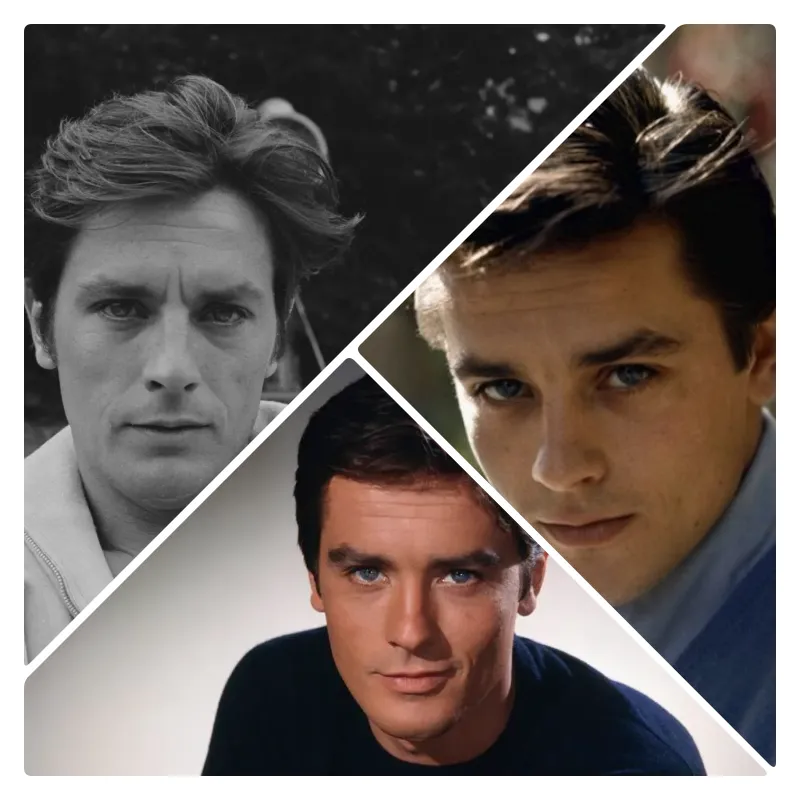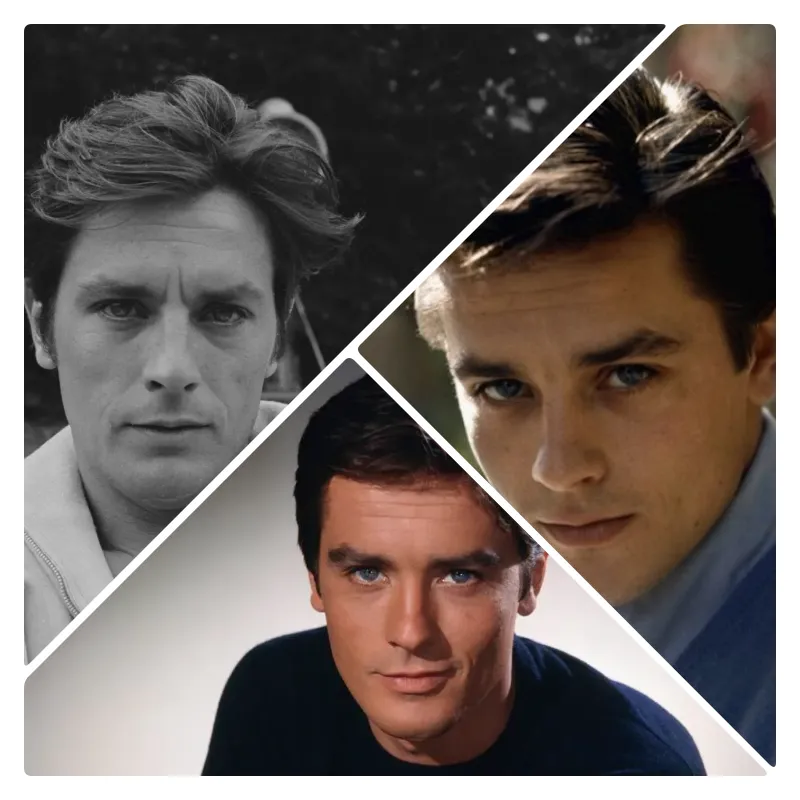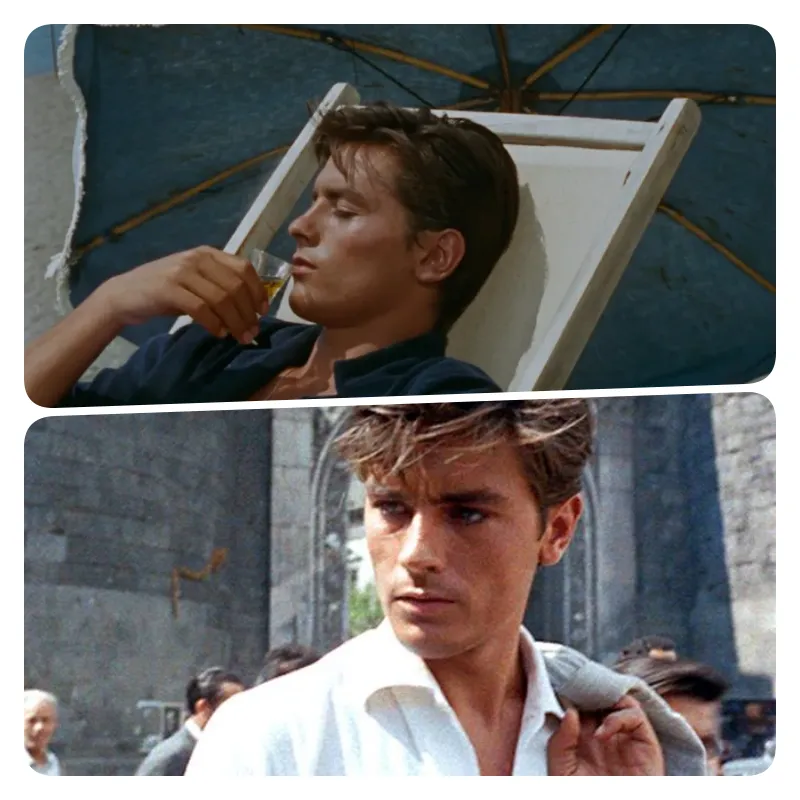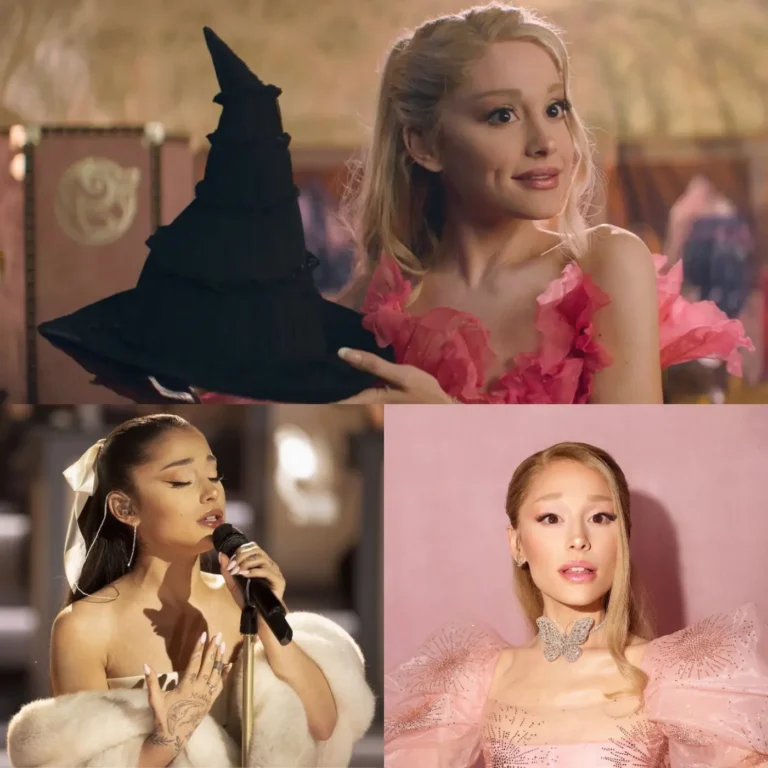
Alain Delon: The Iconic Eyes That Set the Silver Screen Ablaze
On August 18, 2024, Alain Delon, one of Europe’s and the world’s premier film stars, passed away at the age of 88. French President Emmanuel Macron extended his condolences to Delon’s family, honoring him not only as a legendary actor but also as a symbol of French cinema.

From his earliest films, Delon’s captivating beauty transcended the screen, giving rise to what has been called “Delonisme”—a beauty that suggests both allure and unease, compelling audiences to be drawn to him while simultaneously feeling the need to avoid him.
The story of Alain Delon’s career will continue to fuel debates about whether a film star can be too beautiful, as suggested by a recent article in The New Yorker.
“A New Shade of Blue”
Alain Delon is among the actors whose beauty, though superficially striking, evokes profound emotions through cinematic language. William H. Daniels, the cinematographer who shot 21 films with Greta Garbo, expressed regret over never capturing Garbo in color due to the high costs of color film in the 1930s. Her legendary blue eyes, with their smoky, melancholic gaze, became a lasting regret for filmmakers.
Delon, however, was fortunate to mesmerize audiences with his otherworldly blue eyes from his very first leading role in the color film Purple Noon (1960), adapted from Patricia Highsmith’s novel The Talented Mr. Ripley. Anthony Lane of The New Yorker described this as “a new shade of blue.”
This “new shade” epitomized French romanticism with a global touch of wildness, diverging from the polished, classic handsome men familiar to earlier generations in cities like Hanoi and Saigon. The film defined a screen beauty that was synonymous with solitude and separation from the crowd, easily recognizable.
Film critics have noted scenes like Delon’s character Ripley walking through a fish market, shot with a handheld camera: “People glance at him, as if this were a documentary. Even the fish seem to peer back.”
This humorous observation reflects a sentiment shared by film enthusiasts, particularly in Vietnam, where the concepts of “talent and fate,” and “beauty leading to trouble,” resonate deeply. Delon’s characters often faced turbulent fates, which captivated audiences in a country grappling with the hardships of war and economic sanctions, regardless of the role he played, from the tragic officer Franz in Christine (1958) to a supporting role in the Franco-Soviet-Swiss film Teheran 43 (1980).
Although Teheran 43 was not a commercial success in France, selling fewer than 100,000 tickets, Delon’s presence ensured that Vietnamese viewers were glued to their black-and-white TVs.

Rebellious in Indochina, Struggling Post-War
As a rebellious child and troublemaker in his youth, Delon entered military service with the French Navy at 17 in 1952. After being caught stealing military equipment, he was given a choice: leave the service or continue. Delon served in Indochina during the Battle of Dien Bien Phu and was stationed in Saigon. His penchant for mischief led him to steal a military vehicle, which ended in an accident. Consequently, he was imprisoned and spent his 20th birthday in a cell.
Leaving the military in 1956, Delon moved to Paris, harboring resentment towards his parents for his military service. He took on various jobs, from unloading goods to waiting tables, mingling with people from the underground world.
His striking physique and angelic face soon opened doors to connections in the French and Italian film industries, during the golden era of the New Wave and Neo-Realism. After several brief romances, his relationship with Romy Schneider elevated Delon to stardom, leading him to work with some of Europe’s greatest directors like Luchino Visconti, Michelangelo Antonioni, and René Clément, as well as Hollywood, where he shared the screen with many of the era’s most beautiful actresses.
Yet, what left the most significant impression was his pairing with iconic actors in crime and drama films, contrasting his angelic face with the ruggedness of Jean-Paul Belmondo, Jean Gabin, or the classic elegance of Yves Montand.
The Modern Apollo
Over a career spanning about 90 films in half a century, Alain Delon received global acclaim and was even regarded as the embodiment of Apollo’s beauty. His enduring appeal extended across French, American, and European cinema, allowing Vietnamese audiences in times of limited exposure to connect with modernity through the fluctuating fates of his characters.



